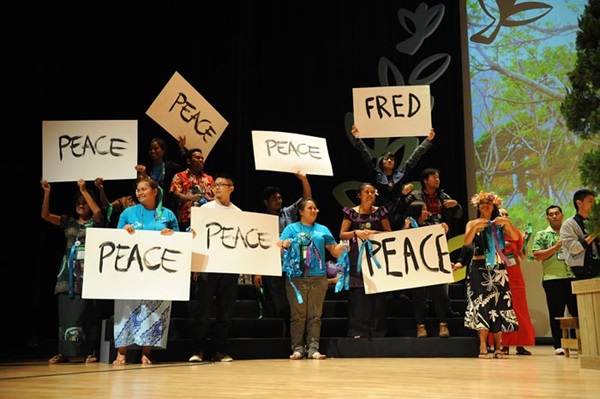In the wake of new sanctions on North Korea that could reduce the country's annual export revenues by one third, World Council of Churches (WCC) general secretary Rev. Dr Olav Fykse Tveit expressed concern over whether those sanctions demonstrate any positive impact in bringing a return to negotiations or preventing its development of nuclear weapons.
World Council of Churches is one of the partners supported by your gifts to the Interdenominational Cooperation Fund which enables United Methodists to share a presence and a voice in the activities of several national and worldwide ecumenical organizations.
Sanctions have, instead, clearly contributed to impeding humanitarian access to North Korea for disaster relief and other aid, Tveit noted.
The latest U.N. resolution bans North Korean exports of coal, iron, iron ore, lead, lead ore and seafood. It also prohibits countries from increasing the numbers of North Korean laborers currently working abroad, bans new joint ventures with North Korea and any new investment in current joint ventures.
"It is not at all clear how the new sanctions can be expected to make any more positive contribution to this extremely delicate and dangerous situation," Tveit said. "We call for a sea-change in the international community's approach to North Korea, in favour of dialogue and engagement rather than military and political confrontation."
The WCC called for moves toward a peace treaty for the Korean peninsula, to formally conclude the suspended state of war which has existed since 1953 Armistice Agreement, and to build a basis on which the current threats to peaceful co-existence in the region can be more constructively addressed and resolved.
"We appeal urgently to the members of the international community to liberate themselves and their policy towards North Korea from the vicious cycle of threat and counter-threat," said Tveit. "The possible consequences of the failure to do so are too appalling to contemplate or to risk."
World Council of Churches website
One of seven apportioned giving opportunities of The United Methodist Church, the Interdenominational Cooperation Fund enables United Methodists to share a presence and a voice in the activities of several national and worldwide ecumenical organizations. Please encourage your leaders and congregations to support the Interdenominational Cooperation Fund apportionment at 100 percent.





